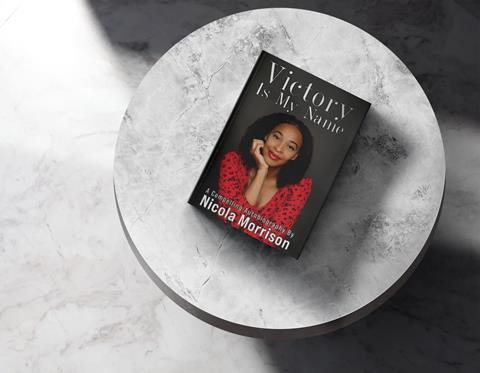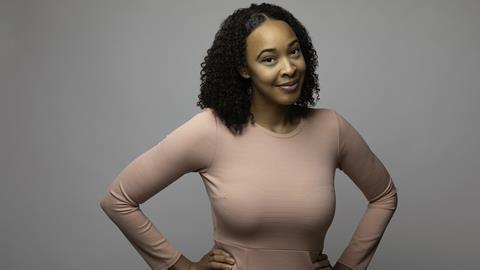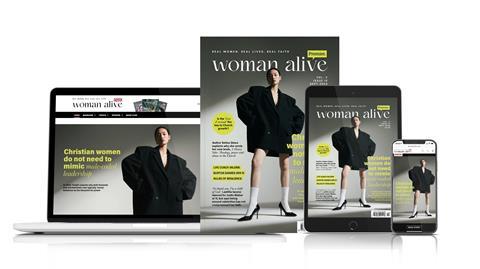Evangelical Alliance editor and former BBC broadcast journalist Nicola Morrison opened up to Premier Unbelievable’s Ruth Jackson about her professional and personal journeys, including her struggle with self-harming
Ruth Jackson (RJ): Could you give us a glimpse of what life was like for you as a child?
Nicola Morrison (NM): I was exposed to a lot of things at a young age that I grappled with into my teens. But, ultimately, I think it just makes the overcoming all the more powerful. It wasn’t me, it was absolutely the God in me and, by his grace, I’m still here.
RJ: Your relationship with your parents was quite tricky at times, wasn’t it?
NM: My parents were teenage parents and they actually had quite a difficult relationship and ultimately grew apart. When I look back, I think they were just kids trying to figure it out. Unfortunately, my siblings and I were collateral damage in that process.
RJ: Why did you decide to go to church with your aunt when you were 18? And why was it different from the other times that you’d been?
NM: I think that it was just one of those moments where nothing else would work. I was all out of resources. I didn’t have any preconceptions, and that ended up being one of the most pivotal points of my life, where I was met by the Holy Spirit in that space, and church felt different for the first time.
RJ: How did it impact you?
NM: The most powerful thing that experience did was show me I had a purpose. Until then I had just been stumbling in the dark. I didn’t know who I was, what I was, who I belonged to or what my identity was. When you don’t have those foundational things it can be so unsettling. It didn’t make all the problems go away, but I always came back to that place of knowing what my Father says about me. I know who I am in Christ and I know that there’s a plan for my future and why I’m still here.
RJ: Could you share how you went from thinking: “I could maybe have a career in journalism” to working at the BBC and breaking some top stories?
NM: Journalism was always something that I was going to do because I love storytelling. As time went on, I realised how much I like talking to and getting to understand people. But it was not a straightforward career. I went into the BBC as an assistant originally, and then retrained and did a master’s in journalism.
Don’t share things that you’re not sure about, because that just perpetuates it
RJ: You ended up on screen, writing and speaking, and were one of the first people to report on the coronavirus for the BBC back in 2020. What was that like?
NM: I didn’t break the COVID story, but I did write the story of the first UK cases. So that went quite big. Up until then, we’d been told: “Don’t panic, it’s in China, not in the UK. We don’t want to create hysteria.” And then all of a sudden, we had the news that two cases had been detected. It wasn’t like I was just reporting on a sporting event or something; it was affecting everybody. This was my opportunity to really lean into where God’s was calling me. I just had to step out of the boat. The more I did that, the more God showed up, which was amazing.
RJ: One of the places you worked was the BBC disinformation team. How do we decipher what’s true from fake news lies?
NM: It’s really easy to spread disinformation if there’s an agenda behind it. We have to be citizen journalists ourselves. So, if thinking about politics, ask yourself: “Am I only following one party’s output? Or am I actually opening up my mind to hear from lots of people?” Another thing is actually to follow disinformation specialists, as they know what they’re talking about, and they can back it up with evidence. Don’t share things that you’re not sure about, because that just perpetuates it and then things get so many shares and likes that they end up getting more eyeballs when really they shouldn’t. Ultimately, I think we have to be careful about how much we’re receiving. I take social media breaks all the time. I just think there’s too much noise. So, we have to be quite smart in terms of protecting ourselves and that is part of protecting our mental health as well.
RJ: We talked a little bit about your parents, but you speak about a number of broken relationships in your book, Victory is My Name. How have you found the strength to offer forgiveness in some of those situations where there has been a real breakdown and an awful lot of hurt?
NM: I realised that, as cliché as it sounds, it wasn’t really for anyone else but myself. I felt so much lighter when I was in spaces where I didn’t have those tensions, or I didn’t have those wounds that were still being reopened. I don’t think they’ve completely healed. I don’t know if they ever will. But I was able to move forward because I knew that I could counter the lies of what I was being told. I’m really grateful to God for the healing of those relationships. I’m extremely close to my mum today; she’s one of my biggest cheerleaders.

RJ: You are really open with some of your mental health struggles in the book. Do you think there’s anything that has specifically helped you in the midst of your darkest moments of depression, anxiety or suicidal thoughts?
NM: I think one of the biggest things has been being open and trying to remove the stigma of mental health issues. I was very much functioning; I appeared happy and bubbly. There were days when I would be at my best and go home and self-harm. I would encourage anybody going through any kind of mental health challenges to not suffer alone.
RJ: You mentioned so many heartbreaking situations in the book. How were you able to hold on to your belief in God when you were completely overwhelmed by the grief of those?
NM: The day that I said the prayer salvation, I knew that I’m not alone. It’s like having a friend in the room when you’re crying and the curtains are drawn, and it’s really dark. That’s how I feel when I’m going through stuff.
RJ: How are you able to hold in one hand the goodness of God that you believe to be true, but reconcile that with this terrible suffering that you are not only seeing from the outside but are genuinely experiencing yourself?
NM: I think ultimately understanding the word of God, that on earth we are going to go through stuff. We’re not immune, but the difference is that we have someone that is journeying with us. I understand that this is part of being in a fallen world.
RJ: Would you have any encouragement for someone who’s going through a particularly tough time at the moment?
NM: I would really love to encourage them with scripture. Jeremiah 29:11 says there is a future and there is hope. One of the things that was able to distract me from God’s purposes for my life was the belief that it would always be dark and I was on my own. If someone’s thinking: “No one gets it. I’m all alone. I’ve always felt this way. It’s never going to change” I would encourage them that that is not true – that is a lie from the pit of hell. There is a future for you, but right now it’s tough. Don’t suffer alone.
Find out more about Nicola at nikki-news.com and follow her on X @Nikki_Presenter
































No comments yet